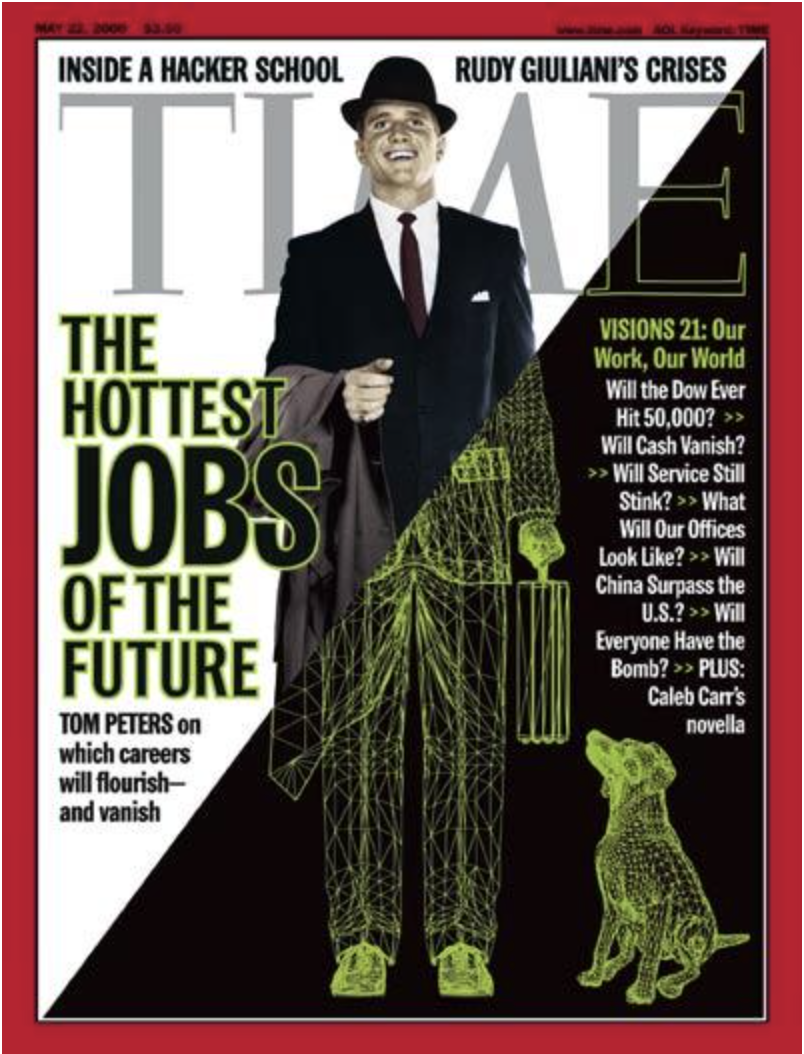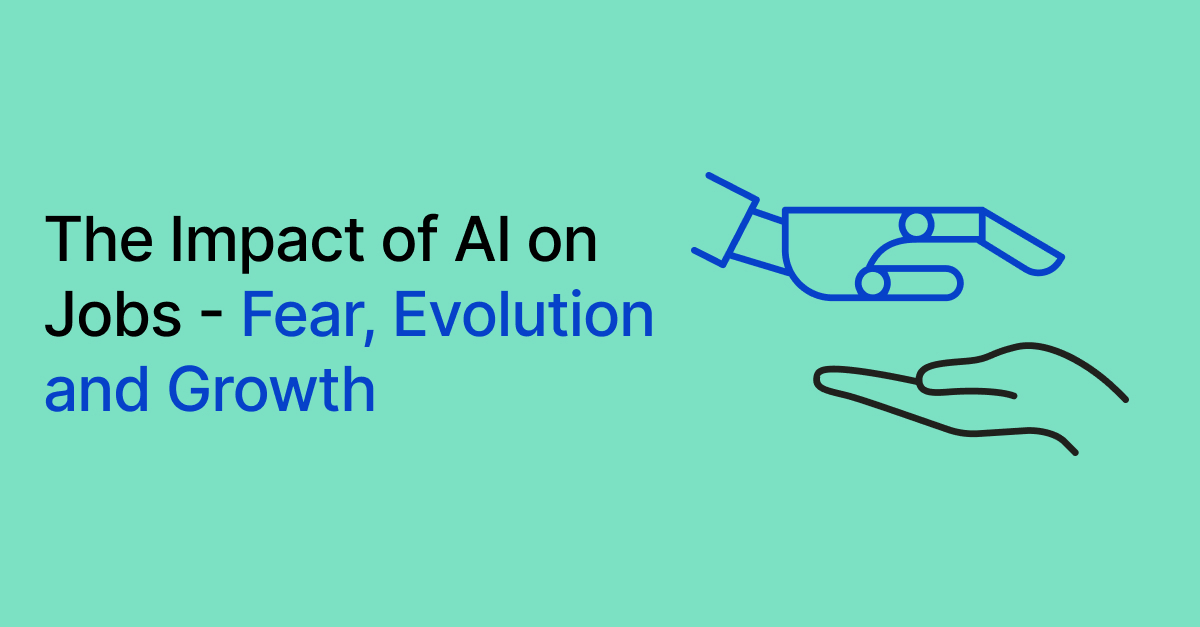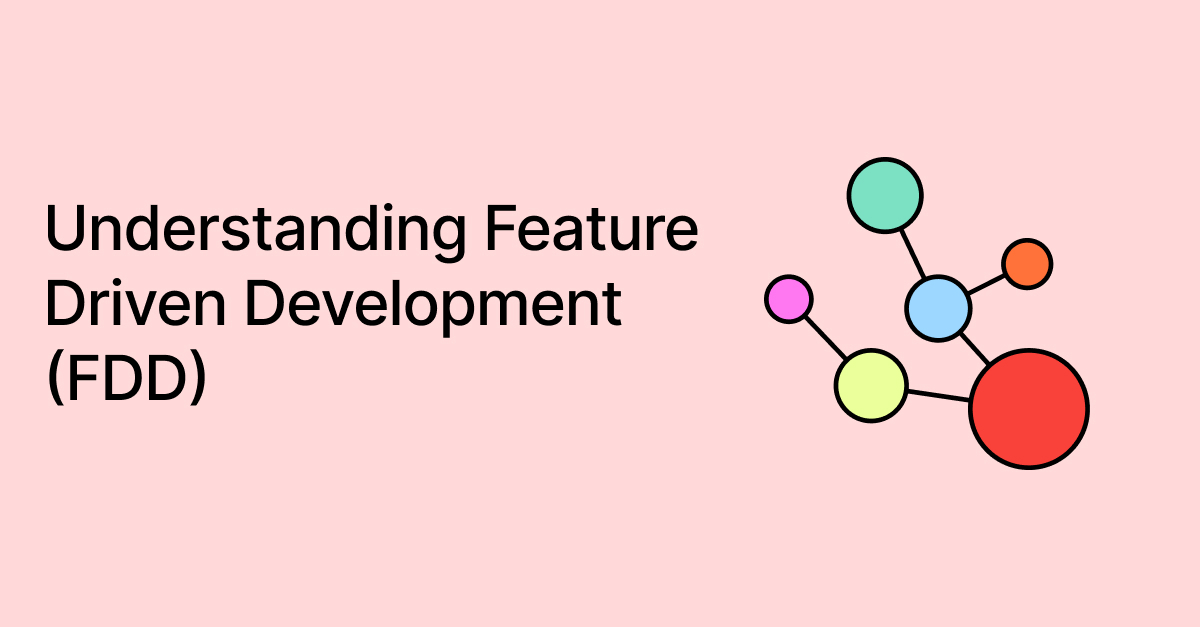When you light a candle, you also cast a shadow.
Recent advancements from OpenAI's GPT-4o and Google's Project Astra mark the dawn of a new technological era. These Large Language Models (LLMs) are capable of performing language and text-related tasks and are increasingly adept at visual tasks. These demos underscore how swiftly AI will integrate into our everyday environments.
A Historical Perspective on Technological Change and Job Security
When discussing these latest advancements in Artificial Intelligence (AI), a recurring question arises: 'Will we lose our jobs in the future?'
To address this concern, let's delve into both historical and contemporary perspectives. Reflecting on an article from Time dated May 22, 2000, provides an intriguing point of comparison. During that time, the rise of the Internet sparked similar fears about job displacement. Just as with AI today, the Internet unleashed myriad possibilities quickly, yet it also incited fear and prompted numerous headlines about the future-proofing of jobs.
Consider this statement from the Time article: 'I believe that 90% of white-collar jobs in the U.S. will be either destroyed or altered beyond recognition in the next 10 to 15 years.' This assertion highlights the same anxieties we faced 24 years ago about technological advancements disrupting job markets. The author presented compelling reasons to support this belief, stoking fears similar to those we encounter today regarding AI.

Recent survey results, such as those outlined in this CNN report, suggest that executives expect to reduce hiring due to AI. Predictions indicating that some job titles will vanish in five years are speculative and often based on incomplete statistical data. For instance, early post-COVID pandemic statistical calculations suggested various possibilities, many of which did not materialize. It's crucial to remember that economic downturns and other factors, such as high inflation rates, also contribute to workforce reductions, often attributed to over-hiring during periods like the COVID-19 pandemic.
The Reality of Job Transformation, Not Elimination
An enduring fear is that “AI will replace software developers”. However, this signifies either a misunderstanding of software development or an attempt to generate sensational headlines. LLMs unlock the ability to learn rapidly and lower barriers to knowledge, making it accessible to anyone willing to learn. This means developing new meta-abilities and innovating, rather than merely automating existing tasks. Human intelligence remains integral to this process. In many industries, complete digitization remains a distant goal, leaving ample room for current technologies to fill gaps.
Other disciplines have faced similar transformative innovations. For instance, the advent of easy prototyping and modeling tools in engineering hasn't led to a reduced need for engineers; rather, it has spurred more production, increased productivity, and led to more consumption due to the rapidly growing population. Faster prototyping and analysis capabilities have heightened the demand for engineers. Instead of creating robots to use pen and paper, we developed applications to prototype quickly.
Let's take one of the most vulnerable job titles—translators—into account. The need for translation is not limited to instant translation, such as those provided by modern chat interfaces. Still, it extends much deeper into translating and localizing books, legal documents, and other complex texts. For these specialized translation jobs, an increasing number of companies will enter the competitive landscape, necessitating the expertise of language specialists. Companies like DeepL are already seeking these specialists to ensure high-quality translations. As a language specialist at DeepL, one would handle nuanced and culturally sensitive translations that AI systems might not perfectly capture for some time.
Socioeconomic Considerations
The socioeconomic impact of AI warrants serious discussion. If AI or robots were to take over all jobs, a fundamental question arises: who would have the purchasing power to sustain the economy? It's more plausible that AI will impact lower-income jobs rather than higher-salaried positions.
If roles such as medical doctors, artists, writers, translators, and engineers were to become obsolete, society's economic structure would face significant challenges. This transition would present a social rather than a purely technical problem. As a proactive measure, the concept of a global basic income is under quiet negotiation by companies, though it remains a distant possibility.
Growth, Not Replacement
Renowned for his profound insights into programming and its human aspects, Gerald Weinberg captures this era of concern aptly. In one of his books, he elaborates on the emotional spectrum experienced during the transition from the IBM 650 to the IBM 704. Initially, top IBM 650 programmers felt pride and satisfaction, but this confidence was quickly destabilized by the superior IBM 704, causing resistance and initial rejection of the new technology. As they grappled with the IBM 704, they faced frustration and vulnerability but gradually started to appreciate its advanced capabilities. (I know most of Gen-Z developers don't know what I'm talking about :) )
Weinberg's experience underscores the emotional challenges and subsequent growth that come with adapting to new technology. He calls this process 'meta-learning'—the evolution and adaptation that enable one to become more productive with new tools. This was evident when he transitioned from assembly languages (IBM 704 to 360) to higher-level programming languages—proving less daunting because he had already mastered the 'meta-learning' battle.
Modern coding assistance tools, such as Large Language Models (LLMs), can identify issues, write programs, optimize processes, and handle repetitive tasks. Thus, jobs that AI or robots take over become trivial and repetitive, facilitating a shift towards more complex and creative tasks for humans.
Navigating an AI-Driven Future
Envision a world where AI assumes most of our jobs. If developers themselves become AI agents, traditional tools like programming languages, databases, and even browsers could become obsolete. This is a highly futuristic scenario; currently, we can barely predict technological shifts 2-3 years ahead. Nonetheless, it's undeniable that AI will shape our work environments and job execution methods. Language-related fields such as translation and language learning are poised to benefit significantly from AI advancements.
The human potential will be further unlocked as we utilize the vast expanse of human data to our advantage. Ultimately, those willing to learn and adapt will emerge victorious in this new era of technological evolution. Historically, technological innovations in the 20th century created more job opportunities than they eliminated, and AI holds the same promise of generating new professions while transforming existing ones.
As we start, let's finish with Ursula K. Le Guin: 'You cannot buy the revolution. You cannot make the revolution. You can only be the revolution.' So, let's be the revolution. Fear of losing jobs should not paralyze us. By embracing AI and its potential, we can drive growth rather than be overwhelmed by change.




